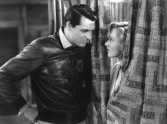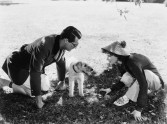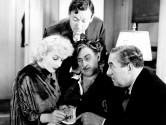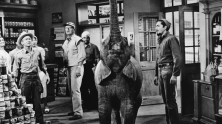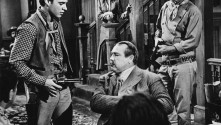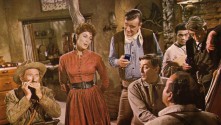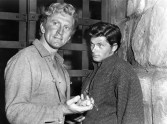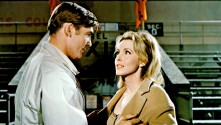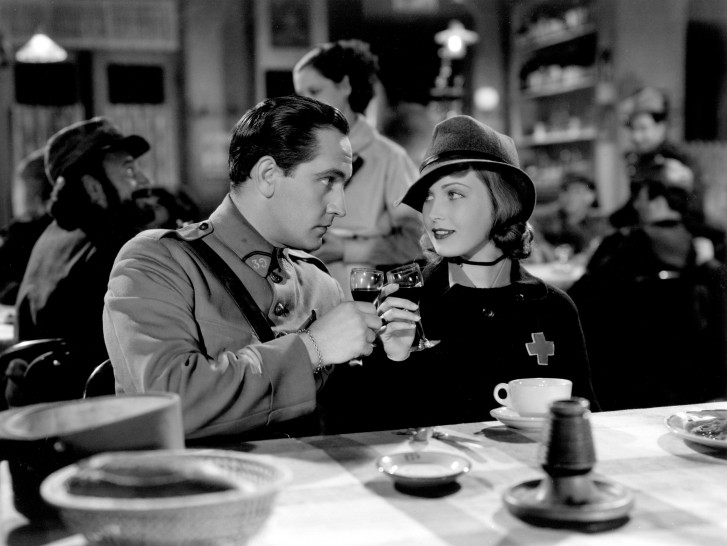
Replacing the aerial dread of The Dawn Patrol and Today We Live with the bleakness of trench life during WWI, The Road to Glory again finds Hawks proffering a statement on the cyclicality and futility of war, a wrenching ceremony in which men die on reckless missions before being replaced by new recruits who will meet the same fate. In its nightmarish opening passage, showing a breakout of grenade smoke and gunfire in a city “somewhere in France,” the film stresses the pervasiveness of combat and the way war rules over everyone regardless of direct involvement; the trench scenes that follow, scrupulously fabricated on a Fox backlot, only further accentuate the doomed atmosphere. Not merely a morose death march, however, Hawks locates pockets of warmth in the camaraderie of the soldiers and in the figure of Monique (June Lang), a young woman of religious faith who shares a therapeutic relationship with Captain Paul La Roche (Warner Baxter) and becomes a symbol of hope for the entire battalion. When newly transferred Lieutenant Michel Denet (Fredric March) joins the fold and falls for Monique, the script shifts into melodrama, but Hawks keeps the emphasis largely on the tragic rapport between the men, who are driven to drink, abandoned by God, but always united by conversation and song.
Part of film series
Screenings from this program
Gentlemen Prefer Blondes

His Girl Friday

The Big Sleep (pre-release version)

A Girl in Every Port

The Cradle Snatchers / Paid to Love

Fazil

Fig Leaves

Man's Favorite Sport?

The Crowd Roars

Today We Live


